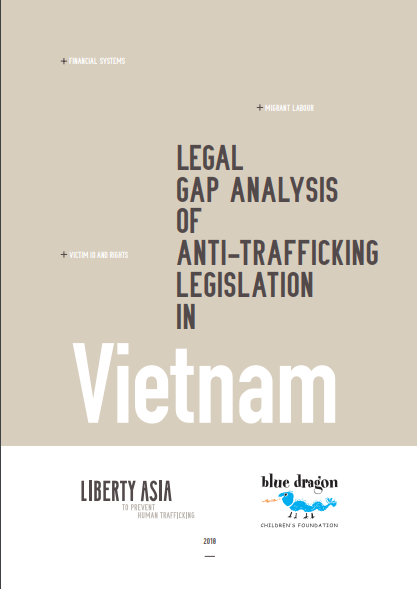By: Liberty Asia & Blue Dragon Children’s Foundation
The Vietnamese government has made significant progress to reinforce the current legal system on combating trafficking, particularly in regulating and criminalising trafficking in the Penal Code. The amendments related to money laundering and corruption under the Penal Code also demonstrate Vietnam’s commitment to take a more holistic approach to combating human trafficking. While some amendments are in positive direction, trafficking in persons and its concerning activities are scattered in widespread offences and the legal system could benefit from consolidating related offences under a single piece of anti-trafficking legislation. The absence of the non-criminalisation provision is also problematic and limits victims’ access to justice.

